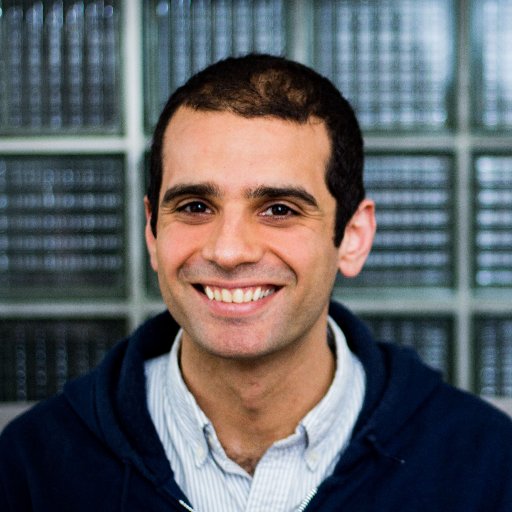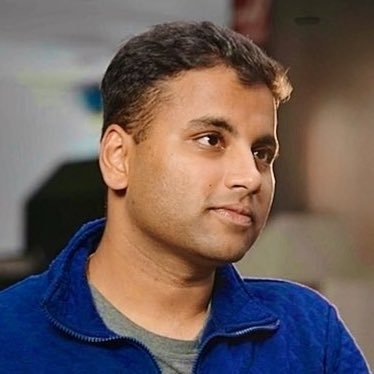
Oz
@oznova_
Followers
7K
Following
6K
Media
300
Statuses
4K
Teaching computer science, learning bio, and homeschooling. Check out https://t.co/7DJHcrvyg1 and https://t.co/pDTuKaskQZ
Joined November 2007
Ok the response to this has been overwhelming to say the least! Please hang tight while I figure out what to do 😅
0
0
9
Inspiring blog post by my brilliant former student Bryan, who has been subtly teaching his 4yo ancient Greek via bedtime stories
bryanlynch.dev
2
4
97
Starting next week, I'll be running a GPU programming study group, working through the PMPP book and Leetgpu problems. It's intended for CS Primer members but if you're keen to join us just for this group, and think you'd be a good addition, LMK
369
59
1K
So, it's interesting to see attempts at this play out, e.g. here: https://t.co/fEEENizCEj ... I'm sympathetic to both sides here but overall hope to see more ambitious coding with Claude Code etc, as well as more ambitious reviewing/maintenance
github.com
Complete C Acceleration for Melting Temperature Calculations Summary Comprehensive C extension providing 10-30x speedup for Bio.SeqUtils.MeltingTemp.Tm_NN with full support for all thermodynamic ta...
0
2
5
A basically perfect use case for coding assistants is writing C extensions for existing Python modules... the problem is already well specified in Python rather than English, often with mature tests, plus you can throw a large number of ideas at a benchmark.
2
1
12
My six year old invented this puzzle. I hope you like it. Neither Gemini Pro nor Opus 4.5 could figure it out from the photo alone, although they could with explicit instructions (what's the fun in that?)
1
1
15
Most SWEs humbly accept the abstraction layer in which they find themselves, e.g. turning wireframes into "Rails apps". Others bust through both ends, e.g read the disassembly or trace the kernel but also talk to the user. If LLMs enable more of the latter, great
0
0
23
I feel like the best LLM users are basically the best self-teachers. They're not trying to be "productive" so much as gain major insights, give themselves good training stimulus, and make major leaps in their own capabilities. This is very different to delegating or "vibing"
A lot of my AI coding work these days feels like the *opposite* of vibe coding That is: working with a *greater* understanding of the code than I would have without AI… Because I’m reading dozens of pages a day of personalized on-demand documentation So satisfying!
0
0
29
1/ A corner of the internet is astir over whether or not this image from Apple is AI. There's a maze on the milk. And I may briefly be the world's leading expert at what happens when you make AI draw mazes! Kids asleep, Christmas a success. What better time to plead my case:
2
3
26
Any school system that doesn't teach kids how plastic or other miracle materials are made, doesn't teach kids how electrical motors work, doesn't teach kids the basics of refrigeration and architecture and water treatment - is not worth a damn!
3
1
25
I'm extremely proud of my jiu jitsu teammate Luca who ran towards danger during last week's shooting at Bondi https://t.co/dD3TnEncls Heroes are real 🫡
smh.com.au
Waiting for his HSC results, Luca Campos Holler dreamt of becoming a paramedic. On December 14, he was flung into a mass-casualty event before his career even began.
1
0
19
This is basically perfect: a real project from a mixed age team, making something they actually want themselves (and want to share) developing skills and knowledge that could keep compounding. Wonderful!
The timeline of life, a stop motion film by Montessorium elementary students. 8 minutes and 2400 frames, conceived, written, and produced by 5 to 12 year olds, mostly 5 to 8 year olds. I love all of it but I particularly love the emergence of humanity at the end.
0
1
16
HOLIDAY GUIDE: KIDS EDITION 1. Apple Macintosh (Untested) from ebay/sidewalk 2. Kindle + jailbreaking guide 3. Prusa MK4S (kit) 4. pcpartpicker credit 5. ...
HOLIDAY GUIDE: KIDS EDITION 1. Playdate 2. Bondu 3. Stickerbox 4. Toybox 5. ModRetro 6. Nex Playground 7. Board 8. Dex Camera See below for more details on these products:
1
0
11
i made a movie about excuses. tbh i wasnt going to make another movie about running marathons then i realized that was an excuse. - https://t.co/jeCj9KEWlW
112
243
2K
Simple but effective way to use LLMs for learning: just say "I'm going to use the Feynman technique. Let me explain [concept] to you in a way that a child could understand." Doing this with a person (or class 😅) is even better if possible. It should feel like a workout!
0
0
11
As a bonus, here's a video of ProteinEBM folding up the fast-folder NTL9, rendered in stunning 2D by py2Dmol from @sokrypton! We hope models like ProteinEBM can serve as a step toward solving the "real" protein folding problem.
I'm super excited to announce the first preprint of my PhD, together with Chenxi Ou and @sokrypton! ML has revolutionized protein modeling, but key challenges remain. For example, we can't predict complicated protein structures without MSAs, which limits what we can design.
7
40
358
Data is from the Top8000 rotamer library (Hintze et al., 2016). I added (g+, g-) despite the severe steric clash, mostly to complete the animation loop 😅 The one Leu residue is rendered alone here (and at fixed ɸ and ψ) to increase clarity, but data is from full proteins
0
0
8









